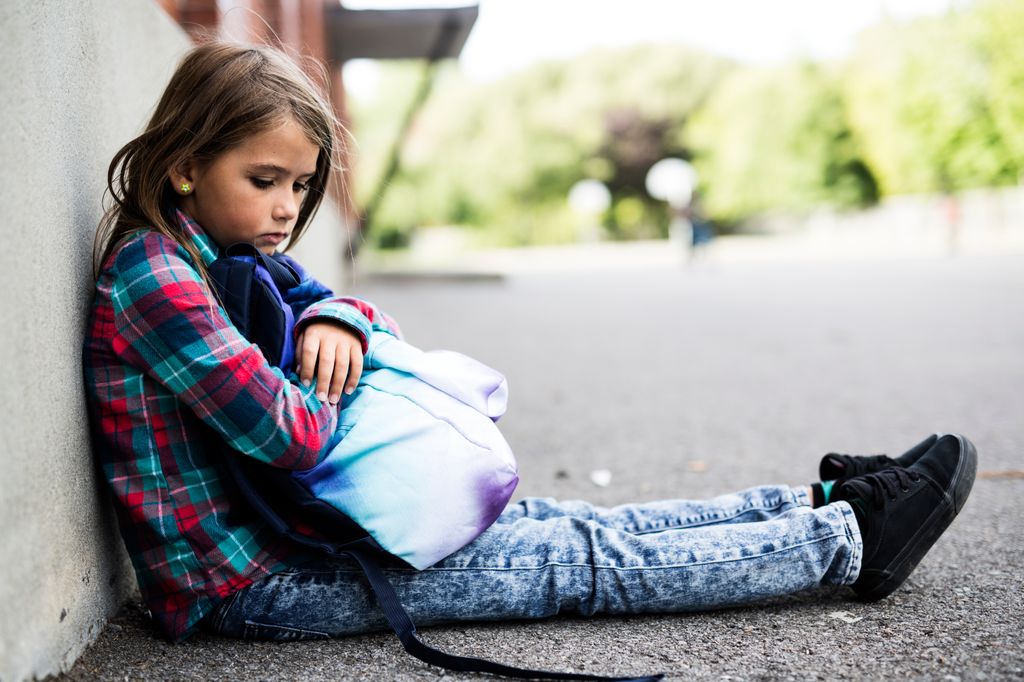When children are asked what they like most about school, many usually indicate that recess time. It is a space and a time where They can be themselves and express how they are and how they feel. In addition, the patio has many other values.
Laura Camas Garrido is a professor at the Faculty of Education at the Complutense University of Madrid (UCM) and a member of the Spanish Children’s Play Observatory. With it we address the importance of this element in the schoolchildren’s day.
Recess has many educational potentials, so teachers must value and protect it
What functions does the playground have for children?
At recess, children can give free rein to their desire for adventure and curiosity, in addition to interacting freely with their peers. But it is important to note that this time also has other functions. “On a physical level, the body releases the accumulated tensions of the mental load of the classrooms, physical activity and motor development are encouraged,” comments the expert. And on a social and emotional level it allows them to expose themselves to adverse situations in which “with imagination and creativity they have to empathize and learn to be decisive.”
“Often through play at recess They express their desires, preferences and differences and perceive those of others with empathy. Spontaneously they learn to cooperate and trust, but also to regulate themselves emotionally in the face of conflict. They are happy to find similarities in their differences and amazed to notice their differences among those who seemed similar. In the margin between imagination and reality that the game offers, they express, experiment and test beliefs and values that they do not always dare to raise,” he details.
For all these reasons, recess is a space with a high educational potential that must be valued accordingly. And where you should have a balanced and healthy exposure to different types of games, from invented free play to structured play.
Why is it not appropriate to leave children without recess?
When a child is left without recess as a consequence or punishment for an action that was not right on his part, a mistake is being made. “In the face of disruptive child behavior, We think that by taking away something that excites them as much as recess, they will be able to reconsider, rectify and change their thinking or behavior on future occasions. Nothing could be further from reality,” says Laura Camas. There are several flaws in this approach.
Punishment must serve to raise awareness and reflect
“In education, punishment has to serve to raise awareness and reflect on the damage caused, the consequences of their actions, the lost opportunity for care and the responsibility to repair what was damaged. This is a complex process that requires the support and help of the adult,” he says. The fact that the child is left without recess does not help in this process. On the contrary, He feels misunderstood and perceives that he has lost something that was not at stake: his time for rest and recreation. “With this type of punishment, he learns to respect the norm by submission to the norm itself, something that does not educate. He may sense that his behavior was not appropriate because he has been deprived of something he enjoyed, but he will not be able to identify the good. that he has ignored and to assume his responsibility for care,” he adds.
Play is a vital necessity for children
Just as minors have clear needs regarding rest and food, they also have clear needs regarding play and we are not always aware of this. “In general, it is often thought that play is an unimportant or serious activity, however, we already have a lot of research that shows that it is a spontaneous activity valuable enough to boost children’s well-being and development in multiple dimensions. “Playing is as valuable as learning,” clarifies the expert. And for many minors, this recess time at school is the only time they enjoy during the day to carry out recreational activities.
To what extent should adults intervene in recess?
One of the recommendations made by the Children’s Play Observatory is that the adult must “take a step back from the game.” It is common for adults to assume a managerial role and take a leading role, which limits children’s imagination. In this sense, “it is important that they place themselves in the role of spectators, as if they were observers or witnesses, without intervening directly,” comments the UCM professor.
If it is the children themselves who ask to intervene, the adult must adopt a secondary and collaborative role, since it is the children who have to assume what happens in that space. “Now, this does not mean that the adult disclaims responsibility; must know how to accompany and, in case of conflict, must intervene, mediate and help in the resolution, establishing the minimum conditions and limits of physical, psychological and social safety during the game,” he points out.
One of the occasions in which the role of the adult can be more functional is when there is a child who is alone at recess, a trend that has been reinforced since the COVID pandemic, since it brought some changes in habits, in the sense of play for a short time, in closed spaces and alone. When a child is alone at recess there may be several reasons behind it, but the teacher must try to convey the importance of the group, “invite them to think about how a game can be more fun not only for themselves but for others.” “A possible strategy is the practice of cooperative games that include different forms of grouping, for example: class group, groups of different ages, quartets, trios or couples,” he recommends.
“On the other hand, in the family environment, it is essential that we are aware of the importance of this need to play from a group conscience. Simple actions such as going to the neighborhood playground weekly can generate a sufficient sense of belonging to be and feel part of the group, the community and society,” adds Laura Camas.


